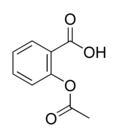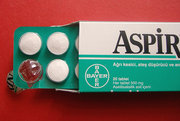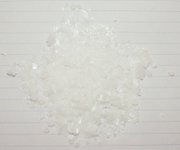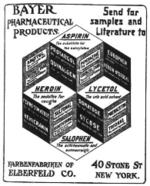* Clinical Question
Does aspirin prevent cardiovascular disease in women?
* Bottom Line
Study Design
Randomized controlled trial (double-blinded)
Allocation
Uncertain
Setting
Population-based
Synopsis
Most of the data on aspirin for the prevention of cardiovascular events comes from studies in men. The current study represents the largest and best evidence to date for women.
Women aged >45 years without a history of coronary artery disease, cerebrovascular disease, or cancer were initially enrolled in a 3-month placebo run-in period to establish compliance with the study protocol. Those who complied throughout the run-in period (n=39,876) were randomized (allocation not specified, but likely concealed) to receive either 100 mg aspirin daily or matching placebo. They were followed-up for a mean of 10 years, with 97% complete data on morbidity and 99% complete data on mortality: very impressive. The mean age was 55 years, and the 10-year risk of heart disease was <5% in 85% of the women. Groups were balanced at the start of the study; outcomes were blindly assessed; analysis was by intention to treat.
Women taking aspirin were less likely to have a stroke (1.1% vs 1.3%; P=.04; number needed to treat [NNT]=444 for 10 years) or transient ischemic attack (0.9% vs 1.2%; P=.01; NNT=384 for 10 years) than women taking placebo. However, there were no differences between groups in the likelihood of myocardial infarction (0.99% for aspirin and 0.97% for placebo) or death from cardiovascular causes (0.6% vs 0.63%), any major cardiovascular event (2.4% vs 2.6%), or any cause (3.1% vs 3.2%).
Gastrointestinal bleeds requiring transfusion were more common in the aspirin group (0.64% vs 0.46%; P=.02; number needed to treat to harm=553 for 10 years). The study was powered to have an 86% chance to detect a 25% reduction in the primary outcome of any major cardiovascular event. Review of the survival curve reveals a steady but small trend in favor of aspirin regarding the primary outcome. This apparent benefit, equivalent to a 5% to 10% relative reduction in all-cause mortality, was not statistically significant despite the study's large size.
* Bottom Line
Aspirin reduces the risk of stroke and transient ischemic attack in women but does not reduce the risk of myocardial infarction (MI) or cardiovascular death. The reduction in strokes over 10 years (number needed to treat=444) must be balanced against an increase in serious gastrointestinal bleeds (number needed to treat to harm=553). No change was seen in this large, long study regarding all-cause mortality. (LOE=1b)
Ridker PM, Cook NR, Lee IM, et al. A randomized trial of low-dose aspirin in the primary prevention of cardiovascular disease in women. N Engl J Med 2005; 352:1293-1304.
COPYRIGHT 2005 Dowden Health Media, Inc.
COPYRIGHT 2005 Gale Group




